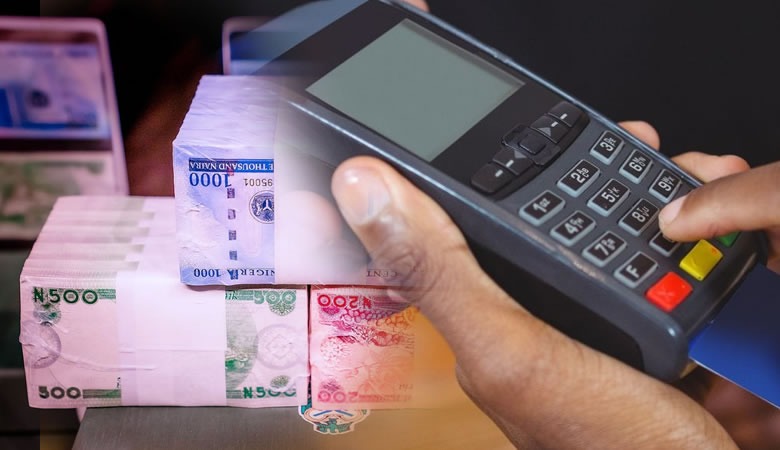By Calista Oyeoba / Posted December 9, 2024
The shocking introduction of Electronic Money Transfer Levy (EMTL) by the federal government of Nigeria (FG), amidst micro economic challenges facing many Nigerians, has sparked concerns among citizens and businesses. The EMTL imposes a N50 charge on electronic transfers above N10,000, with exemptions for transfers under N10,000 and transactions within the same financial institution.
Subscribe To The Best Team In Conservative, Business, Technology, Lifestyle And Digital News Realtime! support@ddnewsonline.com
For Pos operators, the EMTL means increased charges, with an additional N75 extra charge on transactions to cover the levy. This could impact their profit negatively or compel them to pass the new cost on to customers.
The EMTL was introduced to align with the 2020 Finance Act and the Nigerian Stamp Duty Act. The FG highlights that it expects to generate important revenue from the levy, with projections progressively from about N230 billion in 2025, N265 billion in 2026, and N305 billion in 2027.
However, Nigerians have expressed concerns over the new levy, citing increased financial burdens and discouragement of digital payments. Fintech companies have begun implementing the EMTL charge, and some have communicated the levy to their users, stating that the charge is mandated by the government.
Subscribe To The Best Team In Conservative, Business, Technology, Lifestyle And Digital News Realtime! support@ddnewsonline.com
The EMTL’s impact on businesses, cannot be overstated. Many small businesses which rely on fintech platforms for transactions will be adversely affected as the additional charge could either reduce their profit or force them to pass the cost on to customers and in extreme case, abandon the business.



Tagsüber sind Jeans, Sneaker und Polohemden üblich, während abends Partykleider und glitzernde Tops zu sehen sind.
Clutches, Schmuck und SchuheDamen können ihr casino outfit damen durch elegante Clutches und dezenten Schmuck perfekt abrunden. Diese
kleinen Details verleihen jedem casino outfit herren mehr Raffinesse,
ohne übertrieben zu wirken. Frauen haben weit mehr Möglichkeiten als Männer, wenn es um das casino outfit damen geht.
Dunkle Jeans oder Chinos mit Hemd und Jackett für Männer, während Frauen elegante Freizeitkleidung tragen. Die richtige casino kleidung hilft Ihnen,
sich in diese gehobene Welt einzufügen und dabei selbstbewusst und respektiert zu
wirken.
Mit einer Las Vegas-Verkleidung kann schließlich nichts mehr schief gehen und Ihre Party wird zum vollen Erfolg!
Casino-Verkleidungen sind dafür natürlich essentiell!
Da man im Online-Casino von zu Hause aus spielt, ist es nicht notwendig, ein spezielles Outfit zu tragen. In anderen Casinos
ist die Kleiderordnung lockerer und es reicht, wenn man gepflegte
Freizeitkleidung trägt. Frauen können zu einem Cocktailkleid oder eleganten Hosenanzug greifen.
Wer mag, kann den Besuch nutzen, um eine wenig „Casino Royale“ zu spielen. Vom Hosenanzug über das
Kleine Schwarze bis zum langen Abendkleid ist vieles möglich.
Hier ist es den Spielern erlaubt, auch in Freizeitkleidung einen Besuch abzustatten. Besonders Spieler, die zum ersten Mal in einem echten Casino und nicht in Online Casinos spielen wollen, sind sich eventuell unschlüssig, ob das Outfit im
Casino akzeptiert wird. Die Freizeitkleidung muss
“gehoben” sein, darf also nicht zu leger ausfallen.
Langes Abendkleid, Cocktailkleid oder Etuikleid, beim Casino Dresscode dürfen Frauen alles tragen.
References:
https://online-spielhallen.de/ice-casino-bonus-code-ihre-eintrittskarte-zu-fantastischen-angeboten/
Discover the secrets of 999,999,999,999,999,999,999 with our full breakdown of
its prime factors, divisors, and mathematical properties…
This visualization shows the relative proportions of its 7 prime factors (outer circle), plus the relationship between these and its 256 divisors.
You could say that a number is made or ‘composed’ of its prime factors.
Its factors, divisors, and base properties can show some
interesting behavior.
What makes 999,999,999,999,999,999,999 an interesting number from a mathematical point of view?
Just find the currency and get spelling for it. By using this site you accept
our terms and conditions including our privacy and cookie, copyright
and permissions policies. Every whole number greater than 1 is formed from at least one
prime factor. Below you’ll find its key properties,
along with some statistical info, fun facts and trivia.
It has a total of two hundred fifty-six divisors.
It is composed of seven distinct prime numbers multiplied together.
References:
https://blackcoin.co/tattersalls-hotel-casino/
Licensed under Curaçao eGaming, we ensure every spin, card, and bet is secure, fair, and enjoyable.
All users have the ability to establish their own limits for both deposits and bets and
also losses. The platform operates flawlessly on devices with small screens as well as performing at optimal speed.
Top online casino for real money Stay Casino is totally
safe to play. With multiple access points – desktop,
mobile browser, and dedicated apps – you can enjoy seamless play anytime.
These measures ensure players can enjoy the casino responsibly.
New Australian players receive a 100% bonus
up to AU$500 + 100 free spins. Australian players who
prefer gaming on the go can use the Stay Casino app login available for both iOS and Android.
Stay Casino makes sure you can enjoy all your favorite
games on the go. Just a heads up – there’s no dedicated jackpot category here, so you’ll need to search for these games
manually. These games come with progressive
pools that grow with every spin. The action happens in real time, with pro dealers running the show and
a handy chat feature that makes things feel social.
References:
https://blackcoin.co/mindil-beach-casino-online-comprehensive-review/
online betting with paypal winnersbet
References:
https://gjejstaf.al/employer/2025s-best-paypal-casinos-expert-verified-sites/
online betting with paypal winnersbet
References:
dcts.co.kr